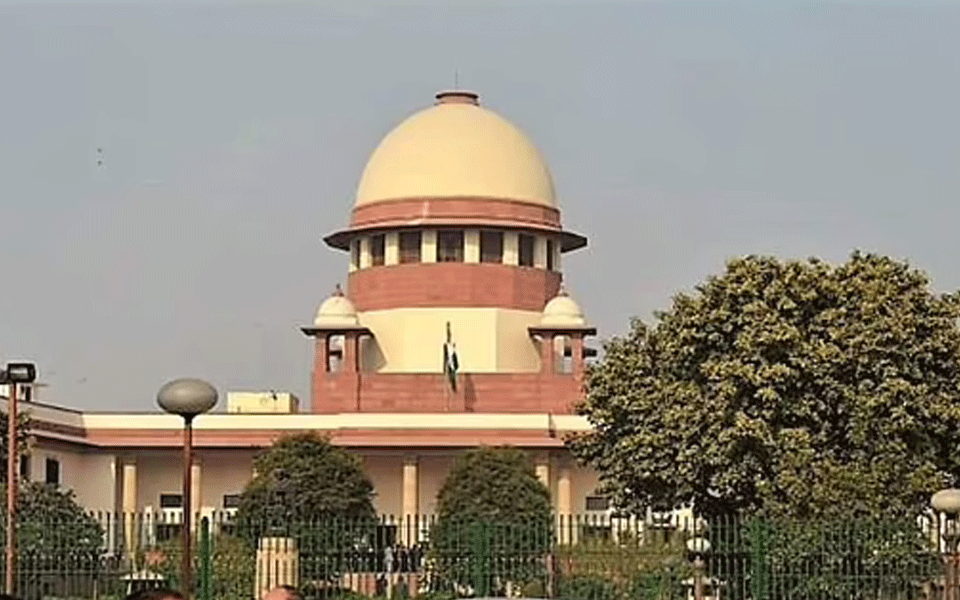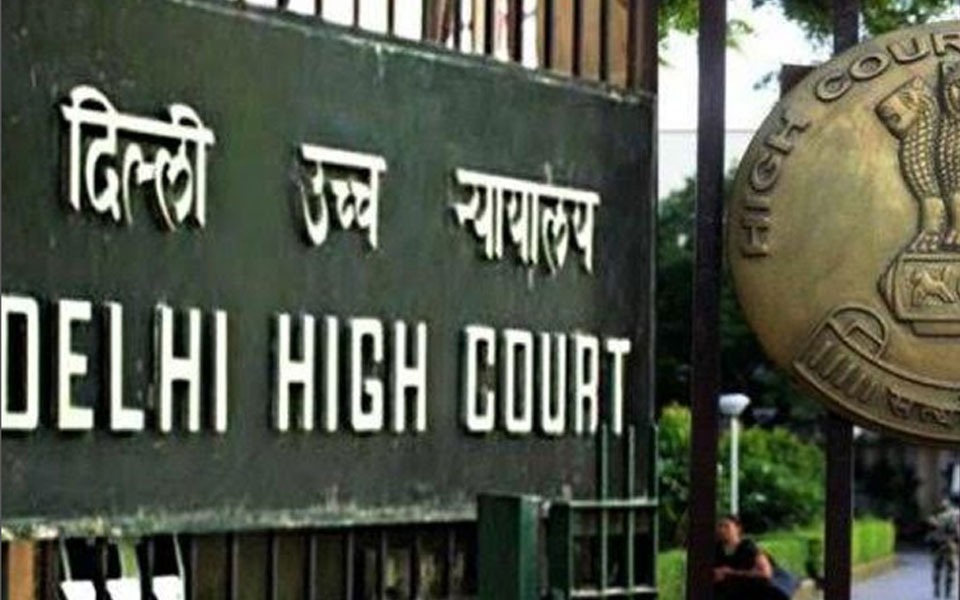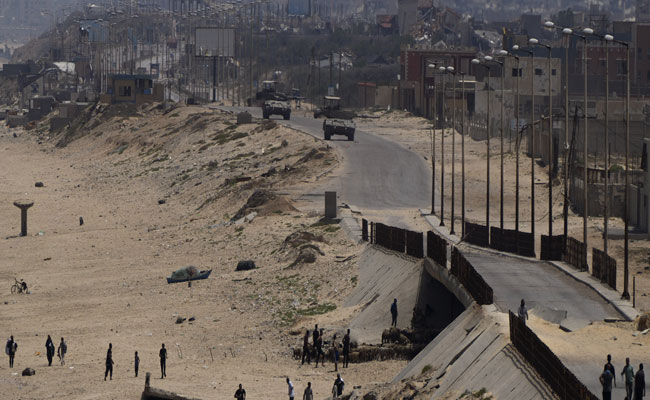New Delhi(PTI): Observing that a child should not be made to suffer due to a dispute between a husband and wife, the Supreme Court has asked an Army officer to look after the maintenance of his 13-year-old son till he attains the age of majority.
While dissolving the officer's marriage, a bench comprising Justices M R Shah and A S Bopanna directed him to pay Rs 50,000 as maintenance to the wife.
Considering the fact that both the appellant-wife and the respondent-husband are not staying together since May, 2011 and, therefore, it can be said that there is irretrievable breakdown of marriage between them.
It is also reported that the husband has already re-married. Therefore, no useful purpose shall be served to further enter into the merits of the findings recorded by the courts below on 'cruelty' and 'desertion' by the appellant-wife, the bench said.
In view of facts and circumstances of the case and in exercise of powers under Article 142 of the Constitution, the decree passed by the Family Court is not required to be interfered with on account of irretrievable breakdown of marriage, the apex court said.
However, at the same time, the husband cannot be absolved from his liability and responsibility to maintain his son till he attains the age of majority. Whatever be the dispute between the husband and the wife, a child should not be made to suffer.
The liability and responsibility of the father to maintain the child continues till the child/son attains the age of majority, the bench said.
The top court noted that the mother is not earning anything and therefore, a reasonable/sufficient amount is required for the maintenance of her son including his education etc. which shall have to be paid by the husband.
In view of the above and for the reasons stated above, the present appeal stands disposed of by confirming the decree of divorce/dissolution of the marriage between the appellant-wife and the husband.
However, the husband is directed to pay Rs 50,000 per month with effect from December, 2019 to the wife towards the maintenance of son, it said in a recent order.
The marriage between the Army officer and his wife was solemnised on November 16, 2005.
The wife had filed a number of complaints against the husband before Army authorities including those pertaining to alleged extra-marital affairs of the respondent-husband.
An enquiry was initiated by the Army authorities against the officer in which he was exonerated.
The Army officer filed a case against the wife before the Family Court, Jaipur in 2014 seeking a decree of divorce and dissolution of marriage on the grounds of cruelty and desertion by the wife.
The Family Court passed a decree for dissolution of marriage between the appellant and the respondent on grounds of cruelty and desertion by the wife.
Let the Truth be known. If you read VB and like VB, please be a VB Supporter and Help us deliver the Truth to one and all.
New Delhi (PTI): The Delhi High Court has directed the city authorities to pay Rs 30 lakh compensation each to the families of three sanitation workers who died during manual scavenging in 2017.
The HC allowed the petition by the family members seeking higher ex gratia in accordance with a Supreme Court order in 2023 which increased the compensation payable to the dependents of the victims who lost their lives in manual scavenging to Rs 30 lakh from the existing Rs 10 lakh.
The family members said in the petition that the three sanitation workers died in August 2017 while cleaning a drain in Lajpat Nagar. The plea said the deceased were engaged by a Delhi Jal Board sub-contractor.
The petitioners said that after they died, a compensation of Rs 10 lakh was awarded to the family members. However, they prayed that the amount be increased to Rs 30 lakh.
"It can be seen that the directions issued by the Supreme Court were expressly made applicable to all the statutory bodies including corporations, railways, cantonments as well as the agencies under its control.
"Moreover, the Union and State governments were directed to ensure that the rehabilitation measures were taken with respect to sewage workers, including the family of those who have lost their lives. Specifically, it was directed that the compensation of Rs 10 lakh that was given to the family members of the deceased workers be enhanced to Rs 30 lakh," Justice Sachin Datta said.
The high court said necessarily, the ameliorative directions, strictures and the embargo imposed by the Supreme Court are applicable to the Delhi Jal Board (DJB) as also to any agency that may be engaged by the board within any part of Delhi in connection with the work relating to the collection of sewage or carrying out connected works.
"Any disregard or violation thereto would invite strict consequences" as envisaged in the apex court verdict, it said.
Considering the reasoning given by the apex court, it would be a travesty if the entitlement of the family members of the deceased scavenging workers is confined to Rs 10 lakh, the high court said.
"The same would defeat the directions of the Supreme Court to enhance the compensation to Rs 30 lakh on the basis that the previously fixed compensation of Rs 10 lakh was fixed as far back as in the year 1993 and could not be considered to be an adequate compensation," it said, adding that the family members of the deceased sanitation workers are entitled to a compensation of Rs 30 lakh.
The high court said the remaining amount be paid to the family members within eight weeks.
Observing that manual scavengers have lived in bondage, systematically trapped in inhuman conditions for a long time, the Supreme Court had in October last year asked the Centre and state governments to completely eradicate manual scavenging across the country.
Passing a slew of directions for the benefit of people involved in manual scavenging, it had asked the central and state governments to pay Rs 30 lakh as compensation to the next of kin of those who die while cleaning sewers.
"The court hereby directs the Union and the States to ensure that the compensation for sewer deaths is increased (given that the previous amount fixed, that is, Rs 10 lakh) was made applicable from 1993. The current equivalent of that amount is Rs 30 lakh. This shall be the amount to be paid, by the concerned agency, that is, the Union, the Union Territory or the State as the case may be. In other words, compensation for sewer deaths shall be Rs 30 lakh," the Supreme Court had ordered.
It had also said that the authorities needed to take measures for the rehabilitation of the victims and their families.





